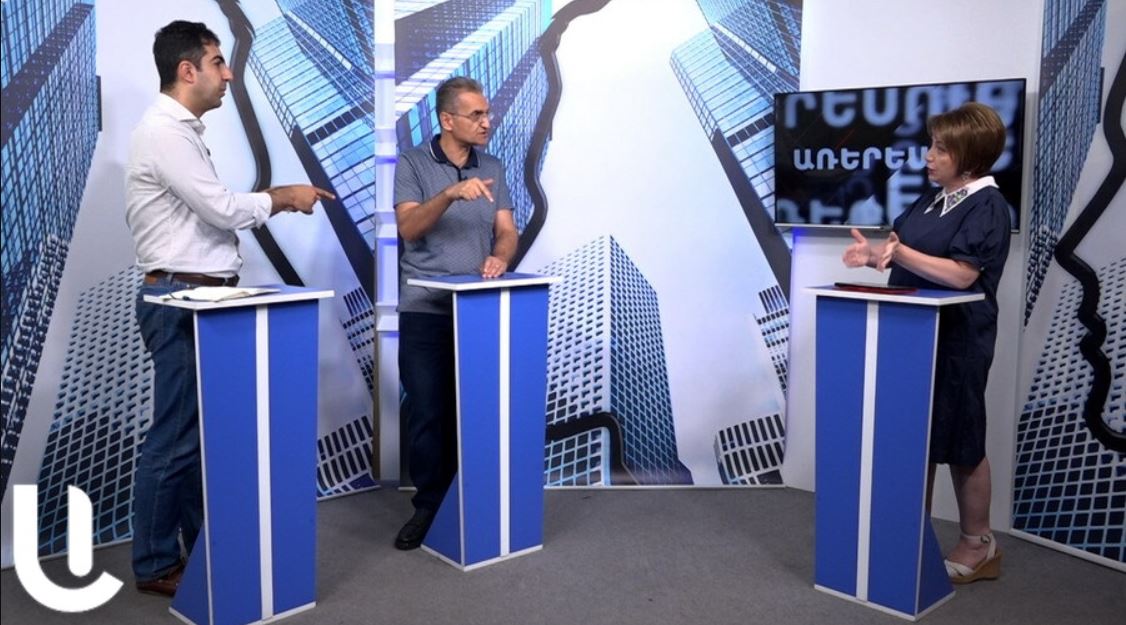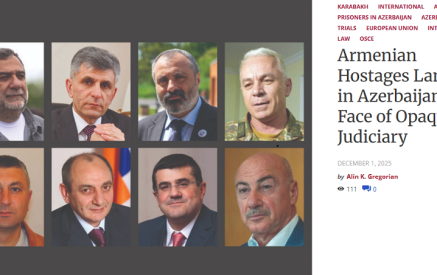Six judges who caused Armenia’s defeat at the European Court of Human Rights in the last year were fired. Moreover, the powers of 3 out of 6 were terminated on July 3. They made judgments in the case related to the economic dispute between two companies, and Armenia had to pay 3600 euros to a German company. “I see this as an exceptionally negative process,” said Aram Orbelyan, a guest of “Aravot” “Areresum” (“Confrontation”) program, a specialist in international law, manager-partner of “Concern Dialog” law office. – At first glance, it seems like a good thing: the judges made a wrong decision and should be punished for it.
Actually, I want to draw attention to several circumstances. The ECHR decision does not mean that the judge is guilty. The judge may be guilty; the legislation may be problematic; the representative of the government, which represents Armenia in the ECHR, may not defend well or present all the arguments.” Let’s remind that Prime Minister Nikol Pashinyan announced earlier. ”
All judges who have issued judgments with gross violations of citizens’ rights established by the European Court of Human Rights decisions must resign or be removed from their positions.”
The specialist in the constitution and international relations Vardan Poghosyan observes: “Losing at the ECHR is not an unusual phenomenon. It is a common phenomenon, and it happens not only concerning Armenia but in countries with the most developed legal systems.”
Read also
Separate reference was made to the termination of the powers of Judge Davit Harutyunyan, who publicly criticized the Supreme Judicial Council after the general meeting of judges. “The powers of more than twenty judges were illegally terminated in different ways, according to me.”
Minister of Justice Grigor Minasyan believes that he discredited the judicial authority in this way, and the judicial code stipulates that “a judge has no right to criticize another judicial body; in this case, that judicial body was the Supreme Judicial Council.”
“I think that there is no offense in Davit Harutyunyan’s statement. Judges also have freedom of expression as judges and as natural persons. And the criticism of the decisions of the judiciary itself cannot be considered discrediting the judiciary’s authority. It would be different if Davit Harutyunyan gave such qualifications beyond the usual, accepted standards of expressing opinions (According to the Judicial Code, “A judge is obliged to show political restraint and neutrality in public speeches and any other circumstances” – Ed.). And at that time, the Supreme Judicial Council could impose any disciplinary penalty on Davit Harutyunyan. But for only expressing an opinion and uttering a critical word, they chose the most severe measure: they suspended the powers of the judge,” said Vardan Poghosyan.
“Haykakan Zhamanak,” («Armenian Time») owned by Nikol Pashinyan’s family, wrote: “Davit Harutyunyan is one of Serzh Sargsyan’s close friends, as well as the son of the former head of the state security service Hrachya Harutyunyan, “Krakem Hrach.” The press wrote about “Krakem Hrach” and that he was closely related to the organization of the March 1 massacre.
Davit Harutyunyan became a judge at the age of 29 and the president of the court at the age of 33, which was an exceptional phenomenon for such an inexperienced and young judge (presumably due to the closeness of Serzh Sargsyan).
Davit Harutyunyan owns a lot of wealth at a young age. Moreover, he was exclusively a civil servant throughout his working career. Before the revolution, Davit Harutyunyan satisfied the petitions of the prosecutor’s office to detain people in 99 percent of cases, but after the revolution, he took a different approach.”
Aram Orbelyan’s reaction was: “It is the monstrous, the most terrible point of the administration of this state. A person is formally held accountable for expressing an opinion about what is happening in the judicial system. But it becomes obvious to everyone that the motives are different. That is a process that has no direct relationship with the legal state. It is the most typical example of direct abuse of rights, a violation of rights by the state. In other words, they say the following: we don’t care about the law, we don’t like you for x, y, z reasons, but we might have a problem holding you accountable for those x, y, z reasons, so we’ll punish you for something else.”
The entire conversation is in the video.
Anna ISRAYELYAN


























































